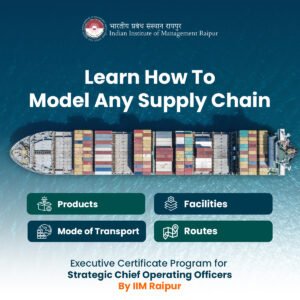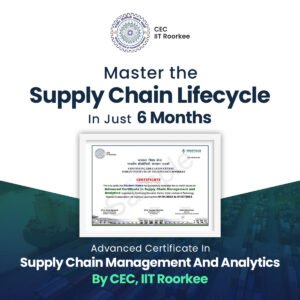In our modern, constantly changing digital landscape, the need for work-life balance is shouting out louder than ever. It’s high time businesses genuinely prioritise the well-being of their team members. For those organisations serious about their people, weaving in the tenets of a strategic HR management program is an absolute must. This is where concepts taught in courses like the IIM HR courses online come into play.
The Work-Life Imbalance and Its Impact
A 2021 Gallup survey revealed that the average full-time worker puts in close to 44 hours a week, with about 41% working 45 hours or even more. Long hours like these take a toll. Too much time at work can result in overwhelming stress, missed sleep, and challenges with mental health. This doesn’t just dip productivity; it also means more people taking days off or even leaving their jobs.
When work starts to consume disproportionate amounts of time and energy, it doesn’t just affect the individual – it ripples through families, communities, and, surprisingly, even back to the employers themselves. Some of the most severe effects of work-life imbalance include:
- Personal strain
- Health complications
- Mental health concerns
- Deteriorating work quality
- Economic implications and more
This work-life balance is not unidimensional and has different aspects and dimensions to it. One of the important dimensions that needs to be kept in mind is the cultural dimension. Let’s look into that a bit!

Cultural Dimensions of Work-Life Balance
The pursuit of a balanced work-life isn’t merely a contemporary trend; it’s deeply rooted in cultural dimensions that differ from one region to another.
Eastern Vs. Western Approaches:
In Western cultures, individualism often leads to a clear demarcation between work and personal life. The emphasis is on personal accomplishments and individual rights to leisure and relaxation. Conversely, Eastern cultures, driven by collectivism, might sometimes blur the lines between professional responsibilities and familial or societal obligations.
In Eastern cultures, work and personal life often mingle and merge, while in the West, there’s a more distinct line separating the two.
Gender Roles and Work-Life Balance:
Cultural expectations also shape gender roles, influencing work-life balance dynamics. In many societies, women are often expected to manage both professional responsibilities and domestic chores, challenging the notion of balance. Recognising and addressing these cultural and gender-specific nuances is paramount for HR professionals.
The Role of Strategic HR Management
Addressing this challenge requires a holistic strategy. This is where the importance of a strategic HR management program comes into focus. Such programs are designed to give HR professionals the tools they need to craft policies that support employee well-being. An HR manager course from a prestigious institution often covers the intricacies of employee engagement, benefits, and flexible work schedules – all geared towards a healthier work-life balance.
1. Flexible Work Schedules
A 2019 study indicated that a whopping 80% of U.S. employees felt they’d be more devoted to their companies given the option of flexible work arrangements. It’s quite likely that this sentiment has only grown stronger with time.
2. Mental Health Programs
One of the most notable trends in strategic HR is the inclusion of mental health programs. Regular workshops, counselling services, and awareness campaigns can make a significant difference.
3. Regular Breaks and Time-Off Policies
Time for relaxation and rejuvenation is essential. Companies with clear, generous, and flexible time-off policies tend to have a more satisfied and productive workforce.
Role of Leadership in Promoting Work-Life Balance
Leaders play a pivotal role in shaping organisational culture. By setting examples themselves, leaders can create an environment where work-life balance is not just encouraged but celebrated. This might involve:
- Transparent Communication: Leaders can hold regular check-ins to understand their team’s workloads and stress levels.
- Leading by Example: Taking time off, emphasising the importance of breaks, and avoiding after-hours communication sends a clear message to the team.
- Encouraging Professional Development: Leaders can support their teams by promoting courses, like the IIM HR courses online, which can equip them with skills to manage their teams better.
Learning from The Best: IIM HR Courses Online
The Indian Institute of Management (IIM) has always been at the forefront of business education. The People Leadership and Strategic HR Management Program offered by IIM Lucknow is a testament to their commitment to modern HR practices. Such courses arm HR professionals with the knowledge and skills to devise strategies that genuinely support employee well-being.
Conclusion
In a world where the lines between personal and professional lives are continuously blurring, focusing on work-life balance is not just an HR buzzword; it’s a business imperative. Employers and HR professionals must invest time and resources in programs that promote this balance. For those looking to enhance their strategic HR skills, institutions like IIM offer invaluable courses online, ensuring that the workforce of tomorrow is not just productive but also happy, healthy, and well-balanced.














